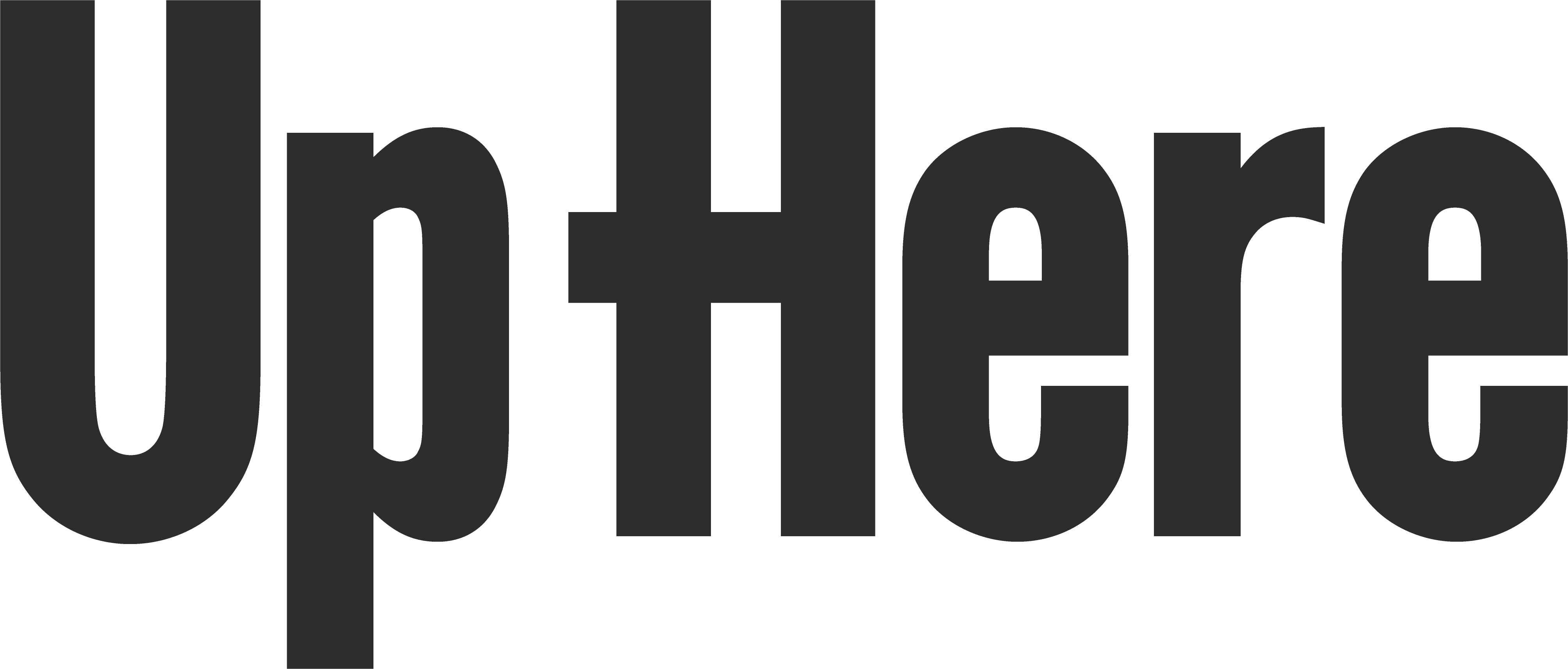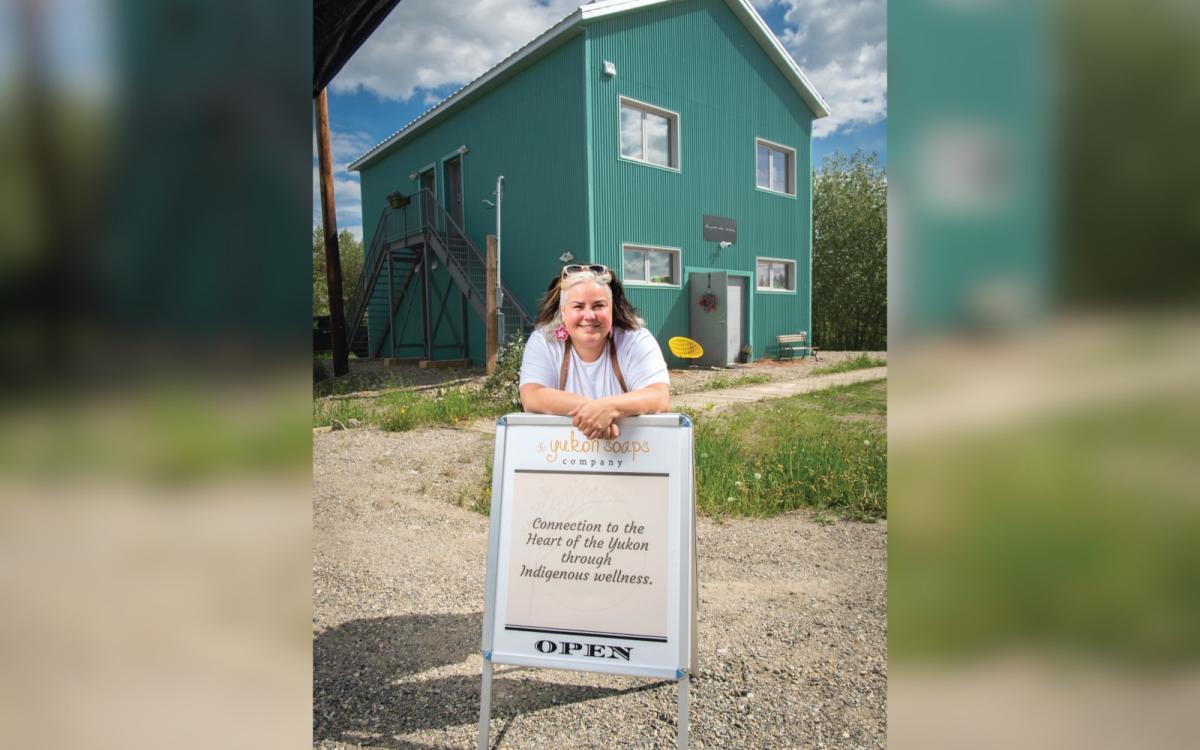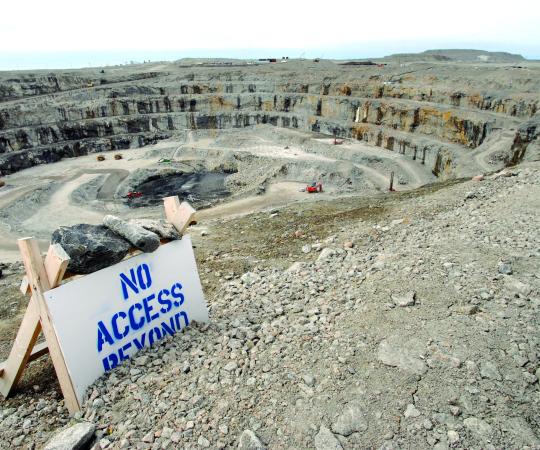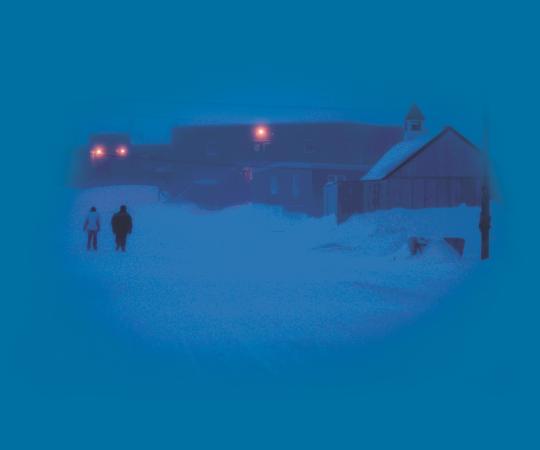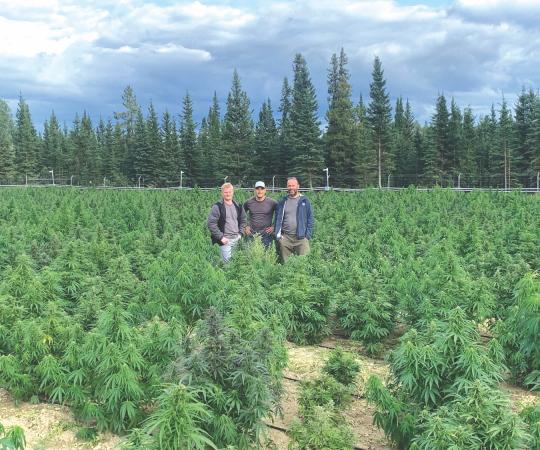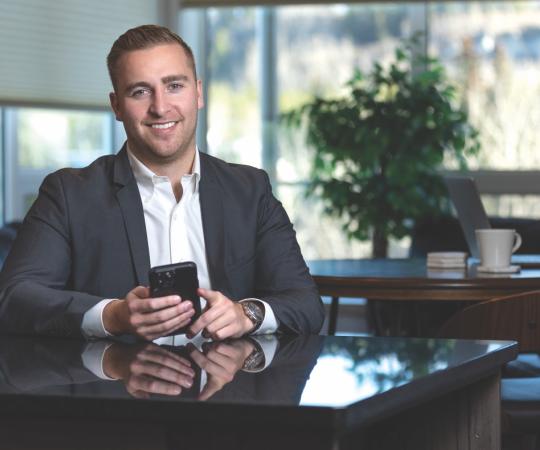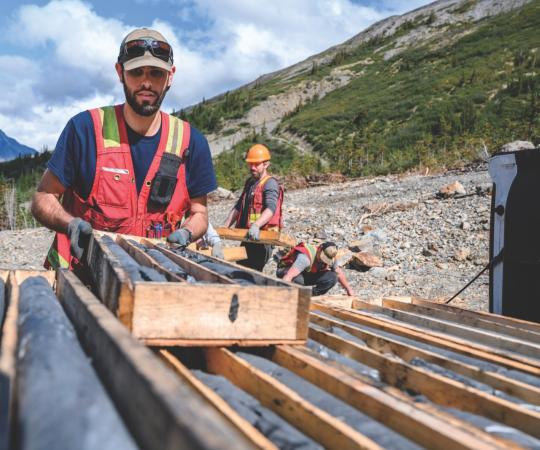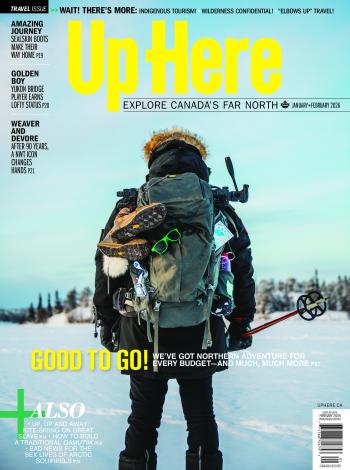On a snowy day in mid-April, a crowd gathered outside an aqua-blue building in downtown Mayo, a small community about 400 kilometres north of Whitehorse. It was a surprisingly sizable turnout for a village of about 460 people, and the excitement in the air was palpable: This was the opening day for Yukon Soaps Co.’s brand-new, 2,000-square-foot manufacturing facility.
At the centre of the festivities was Joella Hogan, the company’s owner and a citizen of the Na-cho Nyak Dun, the local First Nation. The building—named Raven’s Landing in honour of Hogan’s clan—is proof of her entrepreneurial gumption and the growing popularity of her business. She took over Yukon Soaps in 2010. Today, her products retail across Canada, ship globally, and receive regular mentions in publications such as Cosmopolitan and ELLE Canada. “It’s been a whirlwind,” Hogan says, laughing. And now, with a new facility, she is ramping up production of her artisanal soaps and oils, which feature locally harvested ingredients and are inspired by traditional values and culture.
Yet Raven’s Landing boasts more than a spacious workshop. It also includes two one-bedroom affordable housing units, one of which is wheelchair accessible, and a third designated for short-term rentals to tourists and temporary workers. Their purpose is twofold; on the one hand, it will help Hogan pay off the mortgage on the new building. On the other, it provides more housing options in a community that sorely needs them—an example of the socially conscious heartbeat that propels Yukon Soaps. “[The idea] really started because I live a little bit out of town, and I thought I should have somebody living on site for security and maintenance,” Hogan explains. “Then I was like, ‘Hey, we actually need more housing. So how much can we fit in there?’”
In this sense, business is not just a way for Hogan to make a living, but a means of giving back to her community. One of her biggest inspirations on this point is “Together Today for Our Children Tomorrow,” a 1973 statement of Indigenous aspirations and grievances in the Yukon that laid the foundation for the territory’s land claims and self-government agreements.
“It really sets out what they wanted for future generations,” Hogan says of the paper. As a business owner, she was particularly intrigued by the sections on economic and community development. “When I read that chapter, that’s what I think I was meant to do: to honour that guiding document for First Nations people in the Yukon. It’s all about creating economies and communities that thrive, that work for more people, that will build better infrastructure and wellness, and continue to support our people.”
Since taking the helm at Yukon Soaps, Hogan has done what she can to uphold that vision. The company’s ever-expanding line of products stands as an example. Soap bars, body oils, and bath salts are infused with local ingredients such as wild rose, fireweed, juniper berries, and Labrador tea, all foraged using Northern Tutchone knowledge and in moderation as to not disturb the ecosystem. Yukon Soaps also produces a line of soap that highlights the work of Indigenous bead workers, with a dissolvable photograph of their art embedded in the bar itself.
In turn, Hogan takes pride in offering meaningful professional opportunities within Mayo. She currently employs three women from the community. This summer, she plans to hire a small team of local harvesters to do the foraging, something previously done either by Hogan herself or on a volunteer basis. “To me, that is so much magic,” Hogan says of the prospect. “What an incredible act of reclamation that your job is to be out harvesting our plants in a sustainable way, according to tradition, and being part of a circular economy.”
With Raven’s Landing, she is now forging into social enterprise by combining a new living space with her business space, but it wasn’t easy getting it off the ground. She had to navigate spools of red tape and faced challenges in securing a mortgage, namely because she is self-employed and relies on contract work. In most cases, meticulous financial reports and business projections were needed just to get through a potential lender’s door. Hogan had to put in a lot of extra work.
Eventually though, she was able to land $160,000 through the Yukon’s Housing Initiatives Fund to build Raven’s Landing. Funding rules stipulate that Hogan doesn’t charge more than the territorial mean rent— “I can’t charge an arm and a leg,” as she puts it—but that fits in better with her social values anyway.
“I could go on and on about the people who didn’t even make it here (Mayo) because there was no housing,” Hogan says, referring to the troubles the community has filling job vacancies and attracting newcomers. “They wanted to come to Mayo, they wanted the Northern experience, they wanted to work, they wanted to be with their family…but at the end of the day, there’s no place for them to live.”
Hogan is under no illusion that adding a few more affordable units will fix a complex problem like housing once and for all. But she is steadfast in doing what she can as both an individual and business owner to be a part of the solution.
Today, all three units are filled, and the Yukon Soaps Company has officially moved operations into Raven’s Landing. The workshop has already become a “hub,” according to Hogan, offering people a safe space to gather and enjoy one another’s company. And that’s just the way she likes it.
“It’s for people to stop in and say hello, maybe have a cup of tea or a chocolate, and just hang out,” Hogan says of the building’s ethos. “We’re still making a ton of soap and other products of course, but it’s so much more about community.”
